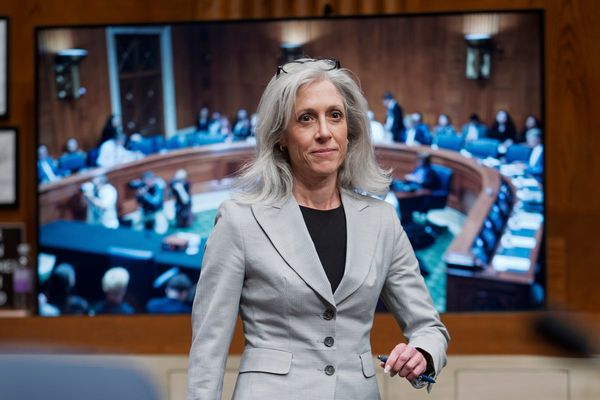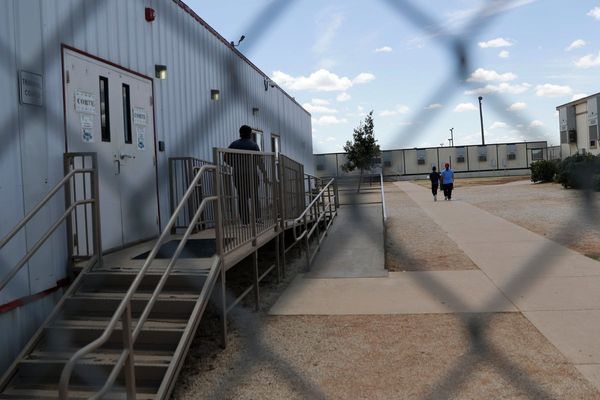On her 75th birthday, France Cordova hiked up Mount Kilimanjaro. Reaching the summit at 19,341 feet would test anyone of any age — and highlights the influential scientist's drive.
She chose the hardest route, the Western Breach, gasping for air and fighting off rocks, boulders and slick mud. She watched younger climbers fall ill and retreat.
But for Cordova, now 76, summiting Kilimanjaro was yet another triumph in a lifetime filled with them.
"I don't vacation sitting on a beach," said Cordova, an astrophysicist who was director of the National Science Foundation and president of Purdue University. "That would be boring."
Cobble Together Experiences From Your Background
Born in Paris (her parents named her after her country of birth), Cordova is the oldest of 12 children. From a young age, she learned to step up and take responsibility.
"My parents traveled often and left me in charge of everybody," she recalled. "There was a lot of work to do."
Growing up in Southern California, she joined the debate team and drama club in high school. She enjoyed public speaking and performing, while excelling in academics.
These skills would soon come in handy.
Answer When Opportunity Knocks
In the early 1990s, Cordova led the astronomy and astrophysics department at Penn State University when NASA came calling. Dan Goldin, NASA's administrator, asked her to become its chief scientist in 1993.
"I found it very easy working with her taking on monumental issues transforming NASA," recalled Goldin, 83. "France jumped into the role. She was enthusiastic and positive."
Goldin, founder of Cold Canyon AI and senior advisor to Cerberus Capital Management, liked Cordova's inquisitiveness, thoughtful approach and quiet determination to tackle challenges.
"If I brought up a problem, she'd think through a number of questions to understand where I was going," he said. "Some people are gunslingers: They shoot off their mouth and give a quick answer. But she would first pinpoint the problem rather than respond instantly."
France Cordova: Become A Leader In Academia And Government
Throughout her career, Cordova has thrived as a leader in both academia and government. She was vice chancellor for research at UC Santa Barbara, chancellor of UC Riverside and president of Purdue University from 2007 to 2012.
In addition to serving as NASA's chief scientist for three years, she was director of the National Science Foundation from 2014 to 2020. The NSF is a federal agency that supports research and education in science and engineering.
She cites her confidence as a guiding force in her leadership. It has given her the courage to take bold risks that others might avoid.
"You have to have confidence in your strengths," she said. "If you've done your homework and believe in the direction that needs to be taken, you communicate it genuinely from your belief that you have a handle on it."
Push For Big Goals
Case in point: As UC Riverside's new chancellor in late 2002, Cordova initially focused on the ambitious goal of gaining the school's admission to the Association of American Universities, a membership organization of research universities. But she soon switched gears.
"I figured out I was asking myself the wrong question," she said. "I thought it was important to join AAU. But I decided the most important thing to do was to focus on this huge region where (UC Riverside) was located and serve its community with a big public medical school."
Her new goal seemed out of reach. Since 1968, almost no U.S. medical schools had started up. And the University of California system already had a handful of medical schools.
"I didn't know if the deans of the five UC schools with medical schools would be (concerned about) losing donors and state support," Cordova said. "And naysayers told me the (Board of) Regents won't approve it."
Build Your Case
But Cordova pitched the idea to higher-ups by building a strong case. She laid out the facts, such as the lack of physicians in the Riverside area. And she argued that the new med school would help attract a more diverse mix of doctors "because they'd be drawn to serve that population of people of color in an underserved community."
By 2008, the new med school opened its doors.
"If the goal is a worthy one, you don't offend anyone along the way and you have the drive and patience to get it done, you can do it," she said. "And UC Riverside wound up joining AAU too. Sometimes, you can get a goal that seems impossible (by going) in a completely different way. It can be a consequence of doing the right things."
Recast Big Goals Into Easy-To-Understand Objectives, Like Cordova
Cordova's confidence came in handy in her three years at NASA. When she came aboard in 1993, some members of Congress mocked scientists' pursuit of alien life-forms.
"Congress talked about 'little green men' and made fun of the search for extraterrestrial intelligence," she said. But among Cordova's many intellectual interests was the possibility of life beyond Earth.
When planetary scientist Carl Sagan visited NASA, Cordova recalls how he saw a picture of Earth on a wall and said, "This is what we should be looking for first: a planet that has the same chemical signature as ours."
To address skeptics' views about searching for extraterrestrial intelligence, Cordova and her NASA colleagues began referring to the search for extraterrestrial life. This wording was more palatable and helped silence the critics.
"We turned their arguments around," she said. "It broke open the door to do this kind of research. People weren't outcasts anymore, and the search for extraterrestrial life at its most cellular level took on intellectually respected paths."
Cordova: Opt For Respectful Questions
Cordova says a key to her success is listening attentively without rushing to judgment. She prefers to gather as much information as she can before making a big decision or responding to conflict.
"To not offend, you have to listen very well not just to the words, but to (nonverbal cues)," she said. "It's knowing how to react and say the right thing."
Goldin admired how Cordova navigated difficult conversations at NASA without rancor.
"She'd disagree by asking, 'Why don't you do it this way?' and she was always respectful," he said. "She didn't get into fights with people."
It's no secret that life as an academic administrator involves its share of political squabbles. Cordova viewed such skirmishes as a test of her mettle.
"I've been told that I have a backbone of steel," she wrote in an essay for the 2023 book, "Lessons Learned: Stories from Women Leaders in STEM," edited by Deborah Shlian. "I guess that comes in handy; I don't break when bad stuff flies my way. And I've learned that when a person is mean to you they are usually mean to others as well and this catches up to them in the end."
France Cordova's Keys:
- Former director of the National Science Foundation, president of Purdue University and NASA chief scientist.
- Overcame: Naysayers who resisted her bold proposals and persuaded them to support her vision.
- Lesson: "If the goal is a worthy one, you don't offend anyone along the way and you have the drive and patience to get it done, you can do it."







